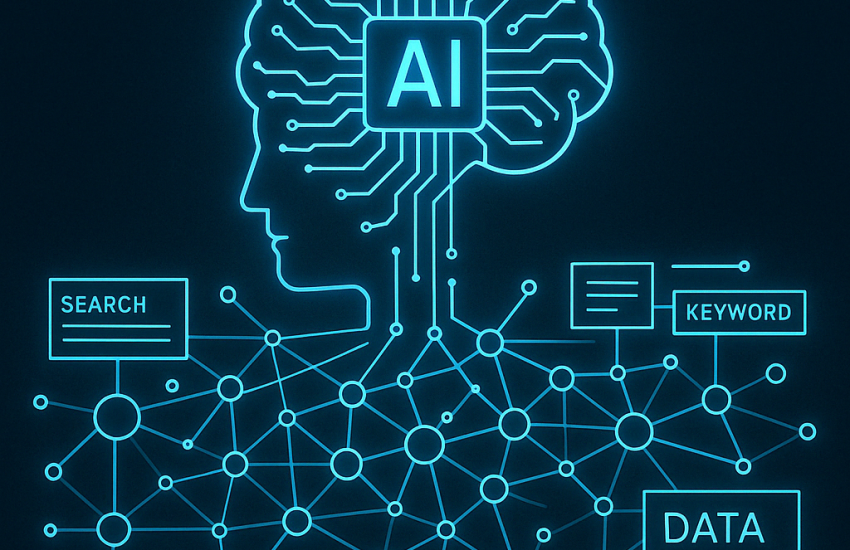1. Search Will Be More Conversational (and Less Keyword-Focused) in the SEO Future
The rapid evolution of artificial intelligence is redefining how we approach SEO and content strategies. As algorithms become more sophisticated, understanding user intent and crafting engaging content will become increasingly crucial for digital marketers and content creators alike. Businesses must rethink their digital strategies to stay ahead in this ever-changing landscape. This article will explore key trends that are shaping the future of SEO and offer practical guidance on how to adapt to these changes.
This shift towards conversational search reflects broader changes in consumer behavior. Users are becoming more accustomed to interacting with voice-activated devices, such as smartphones and smart speakers. This means that businesses need to pay attention to how their target audience is phrasing their queries and what kinds of questions they are asking. Adapting content to suit a more conversational tone will be essential to ranking well in search results.
For example, if a user is looking for hiking shoes suitable for rocky trails, they may be more likely to phrase their question with specific details rather than relying on a few keywords. This has substantial implications for SEO strategies. Marketers should emphasize semantic search optimization by ensuring their content addresses common user concerns and aligns with natural language processing criteria. Incorporating long-tail keywords that reflect these changes will also help enhance visibility.
AI (like ChatGPT, Gemini, etc.) is moving search toward natural language. Instead of typing “best hiking shoes 2025,” people might ask, “What hiking shoes should I buy for rocky trails in summer?”
As we explore the SEO Future, AI (like ChatGPT, Gemini, etc.) is moving search toward natural language. Instead of typing “best hiking shoes 2025,” people might ask, “What hiking shoes should I buy for rocky trails in summer?”
What this means for SEO in the SEO Future: As search engines enhance their capabilities, focusing on user intent becomes a primary strategy. Marketers should aim for high-quality, relevant content that speaks directly to the needs of their audience. For instance, creating detailed guides, how-to articles, and FAQ sections can position a website as a go-to resource, increasing the likelihood of higher rankings.
- Focus less on exact-match keywords.
- Optimize for intent and question-based queries.
- Structured content that directly answers common questions wins.
2. Content Quality > Quantity (Finally!)
By understanding the nuances of user queries and addressing them effectively, businesses can improve their chances of appearing in rich snippets and answer boxes, which draw attention and drive traffic. Regularly updating content to reflect current trends and data also plays a vital role in maintaining relevance and authority.
Moreover, as search engines refine their algorithms, the importance of content quality cannot be overstated. While AI can generate content at scale, businesses need to focus on delivering unique insights and authentic experiences. Sharing personal stories, expert interviews, and case studies can help establish credibility and foster a connection with the audience.
For example, a blog focused on travel could include first-hand experiences from explorers regarding their adventures, which would resonate more with readers than generic travel tips. This type of content not only provides value but also encourages engagement, as readers are more likely to share and comment on relatable stories.
AI can pump out a ton of content, but search engines will prioritize expertise, authenticity, and trust (think E-E-A-T in Google’s terms).
What this means:
- Original insights, first-hand experiences, and human touch will stand out.
- AI-written fluff will likely get filtered out or buried.
As AI-generated answers become prevalent in search results, it’s essential for businesses to adapt their content strategies accordingly. One effective approach is to create content that anticipates the questions users may ask and provides thorough responses. This ensures that not only does the content rank well, but it also serves as a reliable source for AI-generated answers.
3. Search Results = AI Summaries
Search engines will often show AI-generated answers directly on the results page, meaning fewer clicks to websites.
So, how do you still win?
- Optimize content for AI visibility, not just human readers.
- Use structured data, FAQs, and clean formatting so AI can “read” and cite your site.
- Think: How can my content be the source AI pulls from?
Additionally, incorporating structured data can significantly improve how search engines interpret and display content. By using schema markup, businesses can enhance their content’s visibility and increase the chances of appearing in rich results. This is especially important given the rise of voice search, where concise and accurate information is crucial for user satisfaction.
SEO shifts to: To stay competitive, it is crucial to adopt a holistic approach that prioritizes user experience alongside search optimization. This includes ensuring website accessibility, optimizing for mobile devices, and enhancing site speed. Each of these factors contributes to how users perceive the overall quality of the site.
AI will understand site structure, engagement metrics, and user behavior better than ever.
For instance, if a site loads slowly or is difficult to navigate, users are likely to leave quickly, which can negatively impact rankings. Conversely, a site that is visually appealing, easy to use, and provides valuable content will keep visitors engaged and encourage them to return.
SEO shifts to:
- Fast load times, clean UI.
- Easy-to-navigate structure.
- Real value per click.
5. Visual, Voice, and Multimodal SEO Rise
AI-driven search will expand beyond text—images, video, and voice will play bigger roles.
Prepare by:
- Adding alt text, captions, and transcripts.
- Creating visual-rich content with descriptive metadata.
As search engines become more advanced, they will also increasingly rely on users’ multimodal interactions. Content that incorporates various formats—like videos, podcasts, and infographics—will cater to different preferences and enhance user engagement. For brands, this means diversifying content types to meet the needs of various audiences.
Creating a video series that complements a blog post can drive traffic through multiple channels, as users are more likely to share informative and entertaining visual content. Utilizing platforms like YouTube can also improve brand visibility, making it easier for users to discover content across different mediums.
Summary
In conclusion, the future of SEO is not just about adapting to new technologies; it’s about embracing a comprehensive approach that prioritizes user experience, valuable content, and AI insights. By focusing on creating high-quality, engaging material that meets the evolving needs of users, businesses can position themselves for success in the digital landscape.


